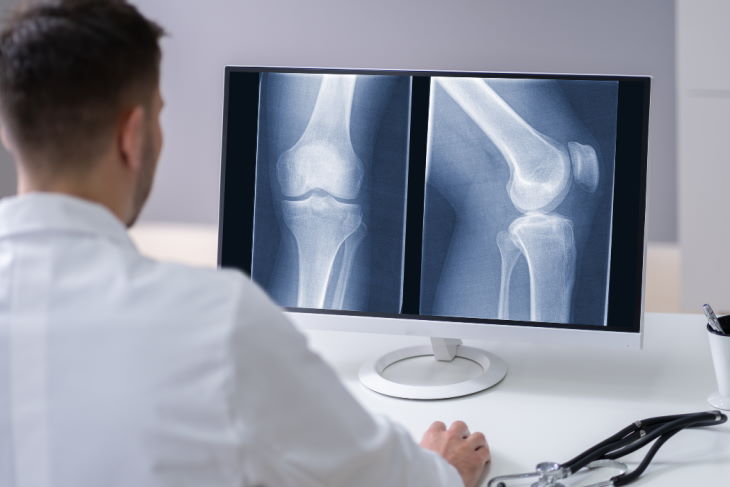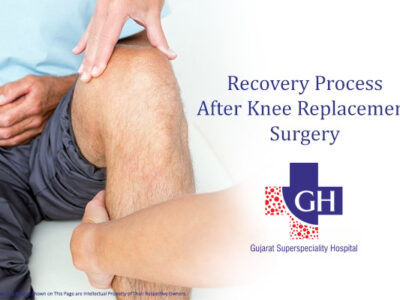OVERVIEW
Joints in the human body are responsible for various bodily movements. Movements like walking, jumping, running, and cycling are performed by our knee joints. These joint connects the thigh with the legs and bears the whole body weight. As we age the tissues, cartilage and ligaments of this joint wear down causing damage. At times medical conditions like arthritis or some injury can also damage the knees. This damage could be recoverable or fatal which requires a surgical procedure ie complete knee replacement or knee arthroplasty or a combination of medicine and physiotherapy.
WHAT IS A KNEE REPLACEMENT SURGERY?
A knee replacement surgery is one of the most common surgeries done especially on elderly patients. The actual procedure is resurfacing the knee joint and its cartilage and replacing them with prosthetic implants which results in better gliding movements and relieves the patient of pain and discomfort. The recommendation of a knee replacement should come from a medical expert and depends on individual medical conditions. The surgical technique and the prosthetic implants vary from patient to patient depending on the level of damage, knee flexibility, patient age and overall health condition. Your doctor is the best to guide you through this.
WHEN IS A KNEE REPLACEMENT SURGERY NEEDED
Knee replacement surgery is a major medical procedure that is used to treat a variety of medical conditions. It is a complex procedure that involves replacing the damaged or worn-out parts of the knee joint with artificial components. The surgery is usually recommended when other treatments, such as physical therapy, medications, and lifestyle changes, have failed to provide relief from the pain and disability caused by the condition. The most common medical conditions that require a knee replacement surgery are osteoarthritis, rheumatoid arthritis, post-traumatic arthritis, and avascular necrosis.
If a person suffers from symptoms like
- Acute and chronic knee pain
- Difficulty in daily activities like walking and climbing stairs
- Difficulty while sitting on the floor
- Acute pain while bending knees
- Swelling or redness of knees
- Some sort of deformity in the shape of knees
All or any of the above symptoms raise the alarm and the patient should consult an expert as these could lead to a knee replacement surgery.
WHAT IS THE PROCEDURE?
Knee replacement surgery is a major procedure that requires a significant amount of recovery time. It is important to discuss the risks and benefits of the surgery with your doctor before making a decision.
This surgical procedure is done by experts after a complete medical examination of the patient. It can be performed under the effect of general anaesthesia or spinal anaesthesia depending on the surgical technique used. The damaged joint, ligaments and tissues around the knee are removed and replaced with prosthetic implants made up of metals (titanium, cobalt-nickel) and medical grade polyethene spacer. The patient might have a total or a partial knee replacement depending on the damage to the knees.
Osteoarthritis is the most common cause of knee replacement surgery. It is a degenerative joint disease that causes the cartilage in the knee joint to wear away, leading to pain, stiffness, and swelling. Rheumatoid arthritis is an autoimmune disorder that causes inflammation of the joints, leading to pain and stiffness. Post-traumatic arthritis is caused by an injury to the knee joint, such as a fracture or dislocation, which can lead to the destruction of the cartilage. Avascular necrosis is a condition in which the blood supply to the bone is disrupted, leading to the death of the bone tissue.
WHAT ARE THE RISKS?
The success of the surgery depends on the patient’s age, overall health, and the severity of the condition. After the surgery, physical therapy is usually recommended to help the patient regain strength and mobility in the knee joint. Knee replacement surgery can be a life-changing procedure for those suffering from severe knee pain and disability. It is important to discuss all of your options with your doctor before making a decision. With the right care and rehabilitation, you can return to an active lifestyle and enjoy the activities you love.
Knee arthroplasty is very common and with the latest medical interventions is very safe. Most of the surgeries do not have any serious complications however there are a few risk factors involved.
- Any sort of infection in the operated portion of the knee.
- Unexpected or uncontrolled bleeding in the knee joint
- A condition called deep vein thrombosis which means a blood clot in the legs
- Blood clots in the lungs called pulmonary embolisms which causes chest pain and breathlessness
- In some rare cases, post-surgery excess bone formation happens around the prosthetic joint which restricts movement and might need another surgery.
- Dislocation or fracture of the knee cap during or after surgery
- Persistent pain or discomfort in the knee
The patient should immediately consult the doctor in case of any post-surgery complications. the doctor will examine the condition and prescribe appropriate treatment.
CARE AT GSH
We at Gujarat Superspeciality Hospital are dedicated to providing our patients with the best of services and quality care. If you or someone you know is suffering from any of the above-mentioned symptoms, consult with our specialists today at Gujarat Superspeciality Hospital. For consultations and appointments contact +91 96870 79991/ +91 88494 48102 and know more.


